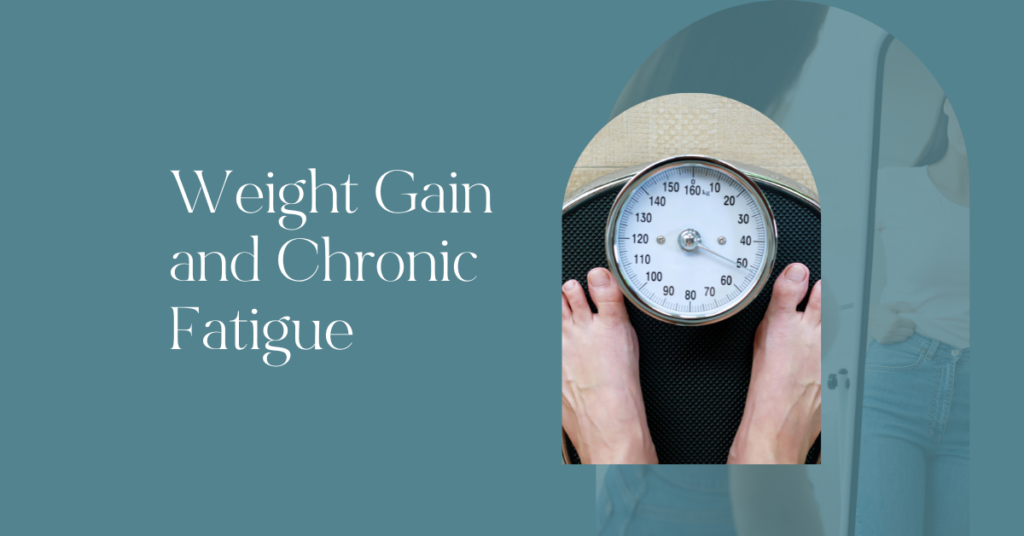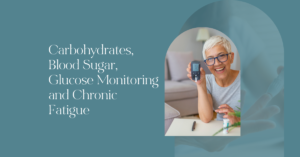Weight gain is something that my clients frequently ask me about as they address Chronic Fatigue and other Chronic Illnesses. Weight gain can be a difficult and challenging consequence of being unwell for various reasons. The message that I feel is most important to hear is that, as your health improves, your weight likely will too.
However, when the discomfort you feel in your body is present right here and right now, it can be hard to hear that this is something that may take time to solve.
As the saying goes; with knowledge comes power, or in this case, empowerment. Therefore I write this blog to share an understanding of weight gain in chronic illness, what you can do to minimise weight gain where possible and how to consider approaching weight gain as you become more and more well.
Weight Gain and Chronic Illness
People experience weight gain as a consequence of chronic illness for a variety of reasons. These reasons may include, but are not limited to;
Sedentary Lifestyle
An overly simplistic way of viewing weight maintenance is to burn calories in alignment with what you consume. When someone becomes chronically ill, especially when the illness has a fatigue component, they will naturally move less and expend less energy. Unless dietary intake is aligned to match the new energy expenditure, weight gain may be the consequence.
When chronically unwell, we can only move as much as the body will allow. Pushing yourself to exercise above your tolerance to avoid weight gain will likely sabotage your recovery efforts and delay weight loss longer term. Therefore, the best approach is to move as much, or as little, as your body will allow, and adjust your dietary intake accordingly.
Loss of Muscle Mass
What we don’t use, we lose. Therefore, a sedentary lifestyle and lack of stimulus to muscle tissue can lead to loss of muscle mass. Muscle is metabolically active tissue which means that the more muscle mass someone has, the more energy they will burn on a daily basis. Loss of muscle mass can result in a further slowing of your metabolic rate. This means that, even if your diet and activity levels don’t change, if you lose muscle mass, you can still gain body fat and possibly body weight.
Loss of muscle mass can be a fairly slow process but it may be increased when someone follows a low protein diet or struggles with digestive issues that cause poor digestion and absorption.
The good news is that if you can optimise your digestion and eat enough protein, you can reduce or mitigate muscle mass losses.
You can also lose muscle mass in an acute illness, for example if you have an acute virus with a fever, your body may break down muscle tissue to energise your immune system.
Metabolic Dysfunction
Metabolic dysfunction means that there is suboptimal functioning of the metabolism. This might show up as blood sugar imbalances, insulin resistance or even type 2 diabetes and cardiovascular disease.
The consequence is poor use and metabolism of fuels and an increase in fuel storage e.g. fat in fat cells or sugar in the liver.
Metabolic dysfunction is commonly a consequence of overconsumption, generally, or excessive carbohydrate consumption. Therefore, one way we can avoid weight gain due to metabolic dysfunction is to consume a balanced intake of calories and not exceed carbohydrate intake over our unique tolerance, as defined by blood sugar monitoring.
Metabolic dysfunction may also be a consequence of gut and liver dysfunction.
Toxic Overload
If you feel like you are eating really well, your blood sugar is balanced, you are moving as much as you can within your capacity, you are eating enough protein and you aren’t losing weight, toxic load and liver function are worth considering.
When the body is overloaded by fat soluble toxins that cannot be eliminated, there may be an increased storage of body fat to compensate. Fat soluble toxins, like mycotoxins from mould, are stored in body fat. If there are more toxins than your body can handle, they need to go somewhere and that somewhere is your fat cells.
There may be many steps to addressing toxic overload which include identifying the toxin and avoiding it, addressing mould spore colonisation (if mould is the issue), addressing digestive health, opening drainage pathways and supporting the liver. I wrote in more depth on these topics in my mould series. Here is a good place to start.
Digestive Imbalance
Digestive imbalances can be a contributing factor to toxic load – gram negative bacteria produce endotoxins known as lipopolysaccharides (LPS) which can enter the bloodstream and cause insulin resistance, amongst other imbalances.
Research has suggested that digestive health can contribute to obesity and imbalances in the gut may increase cravings and negatively impact appetite regulation. Therefore, when there is excessive weight gain despite “doing everything right”, it may be worth exploring digestive imbalances.
Finally, digestive imbalances may contribute to nutrient deficiencies, even when dietary intake is at a high standard. Nutritional deficiencies impact metabolism and can influence weight gain.
Nutrient Deficiencies
Nutrients are the cofactors of metabolism. Without nutrients all the little biochemical steps that help us digest and assimilate our food and turn it into energy, cannot happen. We can ensure optimal nutritional intake by consuming a varied diet of nutritionally dense food or we can dig deeper and explore nutritional needs through nutritional testing, such as the NutrEval (see here).
Thyroid Hormone
Low thyroid hormone can be a common cause of weight gain. I would assume anyone who is struggling with fatigue would have had their thyroid tested but if not, this is definitely something worth ruling in or out. The Advanced Thyroid Test by Medichecks screens from TSH, T4, T3, Antibodies and several vitamins and minerals including B12, folate and Iron.
Medications
Some medications cause weight gain, water retention or increased appetite and cravings which make it easier to gain weight. I am not a doctor so I cannot advise on medications but the advice I give to clients is as follows:
- If you would like to stop your medication because of weight gain, discuss your options with your doctor
- Your doctor may be able to recommend alternatives if you need to continue with your medication
- Long term as your health improves you may be able to wean off or reduce your medication under your doctor’s supervision
Comfort Eating
Being chronically unwell is hard. There are better days, maybe even some good days and then there are the hard days. Some people, depending on their nervous system, may seek comfort in food. This can lead to overconsumption, blood sugar imbalances, digestive imbalances and inflammation.
In my early days when I first didn’t know what was happening to my body I would tend to overeat. However, when I learnt that this was something that could worsen my brain inflammation, I became very disciplined with sticking to my ketogenic diet, for the most part, even when it was hard.
I am someone who is incredibly disciplined and 9.9/10 when I decide to do something, I am committed. If you are someone who struggles with emotional or binge eating and it is impacting your health then I recommend working with someone who specialises in this area, ideally a somatic therapist, who can help.
My Own Weight Journey
Before CFS I had managed my weight, like most women do, with exercise and diet – resistance training 2-3 times per week and not overeating. When I realised I needed to stop exercising I was concerned about how my body would change. At the same time I transitioned to a low ketogenic diet and I actually lost weight while maintaining a good amount of muscle mass from years of resistance training.
However, after a big and unknown mold exposure I suddenly started gaining weight despite nothing else changing with diet and exercise. I struggled with chronic diarrhoea, I was very nutritionally depleted (everything was red on my NutrEval, to date I have been my most depleted client) and I started to lose muscle mass. All the weight that I had lost, which was about 1 stone, previously started to creep back on.
Although it bothered me, I also knew that I had to surrender. These changes were beyond my control and the most important thing was working out what I had to do to be well. When I was well, I could worry about my weight and this is the guidance I give to my clients.
Since becoming more well I did turn my attention back to weight loss and I shared more details on this below. Although I do prefer a slightly leaner appearance for myself, a big part of this for me was to support detoxification. I wasn’t sure how many mycotoxins were still knocking about in my fat cells. I thought if I could drop some body fat, I may likely be less toxic and feel even more well!
This could have been my imagination but it did feel like every time I noticed a shift on the scale, I did feel a little more “mouldy” for a few days. I will never know for sure…
The Best Thing You Can Do For Your Weight Is Look After Your Health First
So far I have shared some of the reasons why someone may gain weight when they have a chronic illness:
- Medications
- Sedentary lifestyle
- Metabolic Dysfunction
- Toxic Overload
- Nutrient Deficiencies
- Digestive Imbalances
- Loss of Muscle Mass
- Hormone Imbalances
And you might be thinking; great, I have to deal with my chronic illness and if I want to lose weight I have to deal with all of this stuff too.
But in reality, all of the above are things that we need to deal with anyway as we look to improve health and improve energy. The things that help with weight loss are not separate from your fatigue recovery journey, they are part of it.
Therefore, the best thing you can do for your weight is everything you need to do to be healthy at this moment in your journey.
If you are someone who used to exercise to the extreme and undereat, there may be a temptation to think that this is what you’ll need to do again. But that isn’t true.
Yes, it might work, but it is a dysfunctional way of achieving weight loss that will not serve you long term.
Which is why the next section covers some additional steps that you can take when your health is at a place where you can push yourself a little bit more.
What To Do When You’re Ready To Do More?
It can be tempting to want to throw yourself into dieting or exercising, my encouragement is to think about this a little differently. The two most important things you’ll want to achieve are:
- Increasing Non-Exercise Activity Thermogenesis (NEAT)
- Building Muscle Mass
NEAT
Your NEAT is made up of your non-exercise activities for the day. This could be your daily step count and other activities you may be doing; chores around the house, gardening, playing with children or pets.
It’s likely that when you were very unwell your NEAT was low or zero. Part of fatigue recovery is rebuilding your NEAT. If you haven’t rebuilt your NEAT, make this a priority before you consider doing anything else too demanding.
I aim for 8000 steps each day which includes the steps I do around the house when I am cooking or doing chores.
Building Muscle Mass
Building muscle tissue is going to be your weight loss superpower. The more muscle mass you have, the faster your metabolism and the better you are at fat burning. It can be tempting to diet as soon as you feel you are strong enough, but actually my guidance would be to focus on eating a maintenance level of calories (e.g. you eat the same as you expend each day), consuming adequate protein (1g per pound of ideal body weight) and resistance training at least 2x per week.
You’ll need to be able to resistance train at an intensity that will stimulate muscle growth and it may take some time until you can do this. I was heavily into resistance training before CFS and even with my knowledge and experience, it took 6-9 months to build myself up enough so that I was gaining muscle mass.
All bodies are different, so don’t necessarily think that a lack of experience puts you at a disadvantage. It may actually be easier to stimulate your body because everything will feel new.
While I was building up my exercise tolerance I focussed on eating enough protein and eating to match my intake, if not, more than my intake (surplus). Over the course of about 6 months I gained a further 7 pounds (½ stone) and I was the heaviest I have ever been. Yet I trusted the process.
Dieting Is The Cherry On Top
Once you have given yourself a good amount of time to build muscle mass (minimum 6 months), you can use a calorie deficit to lose body fat. I like hard data so my preference is to use an app like MyFitness Pal to track calorie intake.
I would normally take 10%-15% off daily energy expenditure. This means that if you were burning approximately 2000 calories per day, you could start dieting at a deficit of 200-300 calories, i.e. 1700-1800 calories per day.
Focus on adequate protein in this time and keep carbohydrates at a level that supports your own tolerance based on blood glucose data.
The goal is to lose weight on the most amount of calories, not the least. As progress stalls, you’ll then have space to drop calories a little lower.
In summary, my own journey looked as follows:
- 6-9 months building tolerance to resistance train
- 6 months resistance training 2x / week with caloric maintenance / surplus (2300-2500 calories per day)
- 2 months “dieting” in calorie deficit (with 1 week holiday in the middle where I ate more some days and less on others)
- Back to maintenance again
The whole process took approximately 18-20 months and I had to be healthy enough to do it! Yes, there were a few times when I exercised when I shouldn’t have but, for the most part, health came first.
It can sound like a slow process but when you learn to enjoy the process, and build a healthy relationship with your body as you do, the time just goes by.
I’m now at a place where I am happy maintaining what I have achieved. I have recently changed my training and began my journey learning Functional Patterns with Brendan Turner. So this is the next challenge for my body as I do everything possible to continue to optimise my health and performance on all levels.










